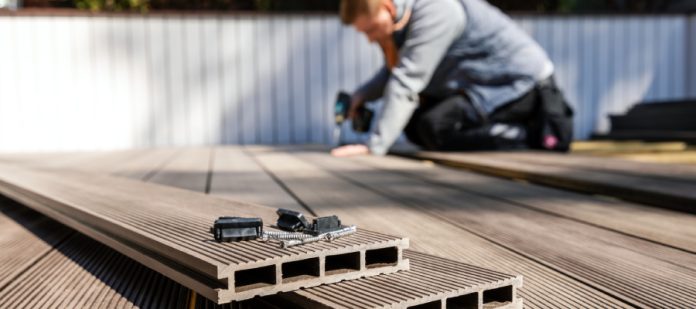Your backyard is a haven where you make memories and laughter echoes. And at the heart of it all is your deck. But before you venture into your next DIY project, consider this—the materials you choose now will affect your deck’s lifespan, maintenance needs, and even your home’s resale value. In this brief guide, we guide you through the best materials to consider when building a deck that withstands the test of time and secures those precious memories.
The Timeless Charm of Wood
Wood is the solution when it comes to imbuing a sense of warmth and tradition. Pressure-treated lumber is cost-effective, though it might require a yearly sealant to maintain its look. Cedar offers natural insect-repellent properties and a pleasing fragrance for a step up in cost and quality. If you want a premium choice, redwood, known for its rich, deep hue, promises beauty and durability—a combination that’s hard to ignore.
Composites: The Modern Choice
Composite materials are the rising stars of the deck-building world. They emulate the appearance of wood while being highly resistant to fading, scratching, and warping. With an array of options that vary in terms of texture, color, and price, composite decking certainly isn’t a one-size-fits-all solution. Though low maintenance by design, they have drawbacks, such as the potential for mold in moist environments and a tendency for some composites to retain heat, which concerns bare feet on hot summer days.
The Exotic Appeal of Tropical Hardwoods
For an exotic flair, tropical hardwoods such as ipe, mahogany, and teak offer a luxurious, durable choice. They’re incredibly dense, which provides beauty and stability. However, the cost can be high, and the denseness makes them more difficult to cut and work with during installation. It’s also critical to ensure sustainable sourcing to protect the environment. Remember, a hardwood deck can increase your home’s resale value, so it’s also an investment in your future.
Aluminum: Light, Yet Strong
If longevity and low maintenance are your priorities, aluminum decking might be your answer. This modern material is impervious to rot, pest infestations, and fire, making it one of the most durable options. It’s also significantly lighter than traditional wood or composite decking, a game-changer for certain spaces. However, the initial cost is high, and some homeowners may find the look less natural than they’d prefer.
The material you select when building your deck is a significant decision, as it will determine the space’s aesthetic, comfort, and durability. Make your choice after considering factors such as long-term maintenance, initial cost, and the environment in which you live. With the right material and a little elbow grease, you’ll soon be basking in the glow of a sturdy, low-maintenance deck that is also a delight to look at.






















